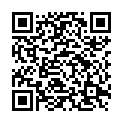|
|
|
| Module code: MST307 |
|
1V (1 hour per week) |
|
1 |
| Semester: 3 |
| Mandatory course: yes |
Language of instruction:
English/German |
Assessment:
Ungraded course work
[updated 02.08.2012]
|
MST307 Mechatronics and Sensor Technology, Bachelor, ASPO 01.10.2005
, semester 3, mandatory course
|
15 class hours (= 11.25 clock hours) over a 15-week period.
The total student study time is 30 hours (equivalent to 1 ECTS credits).
There are therefore 18.75 hours available for class preparation and follow-up work and exam preparation.
|
Recommended prerequisites (modules):
MST106 English I
MST207 English II
[updated 02.08.2012]
|
Recommended as prerequisite for:
|
Module coordinator:
Prof. Dr. Christine Sick |
Lecturer: Prof. Dr. Christine Sick
[updated 01.10.2005]
|
Learning outcomes:
The main objective of this series of workshops is to prepare students for job application procedures in an English-speaking country. Students will learn:
- to appreciate the cultural differences between job application procedures in Germany and those in English-speaking countries;
- to read and understand job listings;
- to write an English CV/résumé;
- to write a letter of application for a work placement/internship and for an advertised position;
- to present themselves effectively in a job interview.
At the end of this course, each student will have his or her own job application portfolio in English.
[updated 02.08.2012]
|
Module content:
The course comprises the following units:
- Applying for a job in English: Cultural differences between Germany and the English-speaking world
- Job advertisements
- The CV / résumé
- Letters of application
- The job interview
Particular emphasis is placed on teaching students the relevant higher-education terminology that should enable them to talk about their university studies (chosen degree programme, specialist areas, course catalogue, etc.).
[updated 02.08.2012]
|
Teaching methods/Media:
Students use integrated multimedia-assisted teaching resources to train the four basic language skills (listening comprehension, reading comprehension, oral and written expression). Communicative skills are trained during student-centred sessions in a computer-based multimedia language lab.
[updated 02.08.2012]
|
Recommended or required reading:
Reference books:
- P. Emmerson: Business Builder. Macmillan
Multimedia language learning software:
- C. Sick, S. Eichhorn-Jung: TechnoPlus Englisch. Ein multimediales Sprachlernprogramm für Technisches Englisch und Business English. EUROKEY
[updated 02.08.2012]
|


